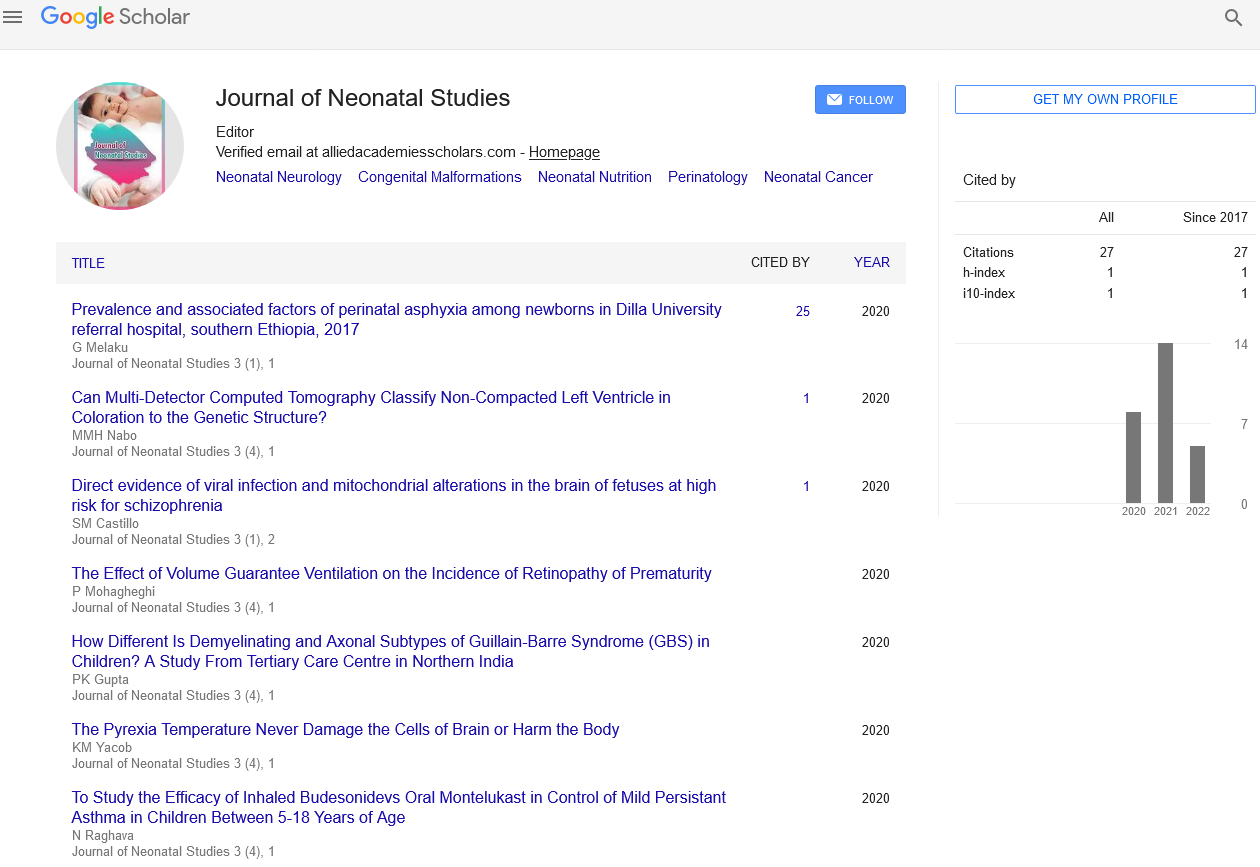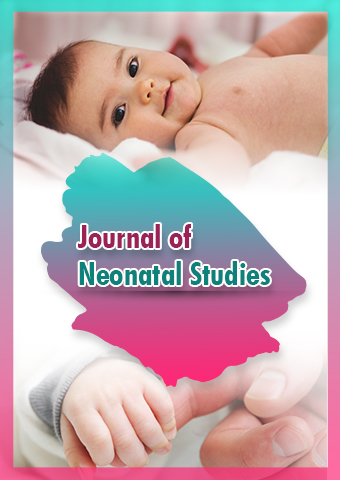Perspective - Journal of Neonatal Studies (2024) Volume 7, Issue 4
Mechanistic Studies: Biological Processes and Pathways that Govern the Health and Development of Newborns
- Corresponding Author:
- Maria Solorz-Zak
Department of Neonatal Intensive Care, Medical University of Silesia, Poland
E-mail: MSZ.1992@smk.sum.edu
Received: 03-Jul-2024, Manuscript No. JNS-24-150489; Editor assigned: 05-Jul-2024, PreQC No. JNS-24-150489 (PQ); Reviewed: 19-Jul-2024, QC No. JNS-24-150489; Revised: 20-Aug-2024, Manuscript No. JNS-24-150489 (R); Published: 27-Aug-2024, DOI: 10.37532/JNS.2024.7(4).247-248
Introduction
Mechanistic studies aim to uncover the biological mechanisms that drive specific physiological and pathological processes. In neonates, these studies are particularly important due to the unique and rapidly changing nature of their biological systems. Understanding the mechanisms at play can help develop targeted interventions and improve outcomes for newborns.
Description
Importance of mechanistic studies in neonates
Neonates are a vulnerable population with unique physiological characteristics that differ significantly from older children and adults. Their immune systems, metabolic processes, and organ functions are still developing, making them susceptible to various health issues. Mechanistic studies help identify the factors that contribute to neonatal diseases and conditions, enabling the development of effective treatments and preventive measures.
Common areas of focus in neonatal mechanistic studies
Immune system development: The neonatal immune system is not fully mature, making newborns more susceptible to infections and immune-related disorders. Mechanistic studies in this area aim to understand how the immune system develops and functions in neonates, identifying potential targets for immunomodulatory therapies.
Metabolic processes: Neonates have unique metabolic needs and challenges. Mechanistic studies in neonatal metabolism focus on understanding how nutrients are processed, how energy is produced, and how metabolic disorders develop. This knowledge can inform dietary recommendations and treatment strategies for metabolic conditions.
Neurodevelopment: The brain undergoes rapid growth and development during the neonatal period. Mechanistic studies in neurodevelopment aim to uncover the processes that drive brain maturation, identify factors that influence neurodevelopment, and develop interventions for neurodevelopmental disorders.
Gastrointestinal health: The gut microbiome plays a crucial role in neonatal health. Mechanistic studies in this area explore how the gut microbiome develops, how it interacts with the host, and how it influences overall health. Understanding these mechanisms can help develop probiotics and other interventions to support gut health in neonates.
Cardiovascular function: Neonates often face cardiovascular challenges, such as congenital heart defects and hypotension. Mechanistic studies in cardiovascular function aim to understand the mechanisms underlying these conditions and develop targeted treatments to improve cardiovascular health.
Methodologies used in mechanistic studies
Mechanistic studies in neonates employ a variety of methodologies to investigate biological processes and pathways. Some common approaches include:
Genomic and transcriptomic analysis: These techniques involve sequencing the genome and transcriptome of neonates to identify genetic and gene expression changes associated with specific conditions. This information can help pinpoint the genes and pathways involved in neonatal diseases.
Proteomic and metabolomic analysis: Proteomic and metabolomic analyses involve studying the proteins and metabolites present in neonatal tissues and fluids. These analyses provide insights into the functional changes that occur in response to various conditions and treatments.
Cell culture and animal models: Researchers use cell culture systems and animal models to study the mechanisms of neonatal diseases in a controlled environment. These models allow for the manipulation of specific variables and the observation of their effects on neonatal health.
Clinical studies: Clinical studies involving neonates are essential for validating findings from basic research. These studies involve the collection of biological samples, such as blood and tissue, from neonates and the analysis of these samples to understand the mechanisms of disease and treatment.
Impact of mechanistic studies on neonatal care and research
Mechanistic studies have a significant impact on neonatal care and research by providing a deeper understanding of the biological processes that govern neonatal health. This knowledge can lead to the development of targeted interventions, improved diagnostic tools, and personalized treatment strategies. For example, mechanistic studies have led to the development of new vaccines, antibiotics, and nutritional supplements specifically designed for neonates.
Case studies and success stories
Several success stories highlight the impact of mechanistic studies in neonatal research:
Prenatal immunization strategies: Mechanistic studies have revealed key determinants of placental antibody transfer, informing the development of prenatal immunization strategies to boost neonatal immunity. These studies have shown that optimizing vaccine timing, dosage, and adjuvant can enhance the transfer of protective antibodies from mother to fetus.
Neonatal inflammation: Research on neonatal monocytes has identified a subset of monocytes with potent immunosuppressive activity, which can protect against neonatal inflammation. These findings provide a potential therapeutic strategy for treating inflammatory disorders in neonates.
Metabolic disorders: Mechanistic studies in neonatal metabolism have led to the development of targeted treatments for metabolic disorders, such as Phenylketonuria (PKU) and congenital hypothyroidism. These treatments have significantly improved outcomes for affected neonates.
Challenges and future directions
Despite the progress made, mechanistic studies in neonates face several challenges, including ethical considerations, sample collection difficulties, and the complexity of neonatal biology. Future research should focus on developing non-invasive methods for studying neonatal mechanisms, improving the accuracy of animal models, and integrating multiomics data to gain a comprehensive understanding of neonatal health.
Conclusion
Mechanistic studies in neonates are essential for advancing our understanding of neonatal health and developing effective interventions. By uncovering the biological mechanisms that drive neonatal diseases and conditions, these studies provide the foundation for personalized and targeted treatments that can improve outcomes for newborns. Continued research in this field is crucial for ensuring the health and well-being of neonates worldwide.

